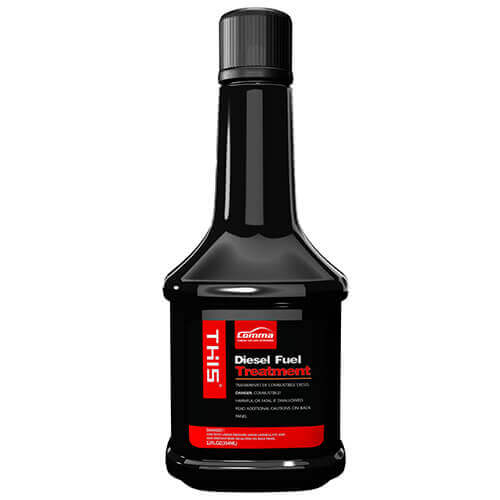When it comes to diesel fuel, think of it as the lifeblood of your vehicle — capable of keeping your engine purring or turning it into a cacophony of discontent. However, one of the most notorious enemies of diesel fuel is an unwelcome guest: water. This seemingly innocuous liquid, often perceived as a pure essence, can wreak unprecedented havoc in the world of diesel. Understanding the nuances of diesel fuel treatment, particularly regarding the treatment of water contamination, is essential for any vehicle owner or industry professional. Let’s delve into the intricacies of this issue and explore strategies to combat its detrimental effects.
Water in diesel fuel is like an unwanted intruder in a finely tuned orchestra. Picture the precise melodies of mechanical components drowned out by discordant notes—when water combines with diesel, it disrupts the harmonious functioning of your engine. Water can enter your fuel system through several means: condensation from temperature fluctuations, ingress while refueling, or even from the diesel itself if it has not been properly refined. Recognizing how water infiltrates your fuel is crucial for prevention.
The first step in understanding water contamination in diesel fuel treatment is recognizing its impact. Water can cause a plethora of issues including microbial growth, which leads to the formation of sludge and corrosion within the fuel system. Imagine your engine akin to the veins of a great tree — when the veins are clogged or compromised by sludge, the entire system begins to falter. Microbes, thriving on the organic matter in the diesel, form biofilms that can clog filters, injectors, and ultimately lead to catastrophic failure. Without proper treatment, this menace can turn your vehicle into an unplanned roadside exhibit of an engine gone awry.
So, how can vehicle owners safeguard their diesel from the ravages of water contamination? Prevention is always the best medicine, and a concerted effort toward maintaining fuel quality is paramount. One of the most effective solutions is investing in a high-quality fuel filter. These filters are designed specifically to separate water from fuel. When selecting a filter, opt for water separator filters that can trap and remove trace amounts of water efficiently, acting as a robust barrier against water infiltration.
Fuel additives can also play a significant role in the battle against water in diesel fuel. Think of them as executives in a well-oiled machine, ensuring everything runs smoothly. Diesel fuel additives are formulated to enhance fuel stability and improve moisture management. Some additives can bind with water, allowing it to separate more easily from the diesel fuel, facilitating easier removal through filtration. This process not only protects the fuel system but also enhances the overall performance of the engine.
In addition to using quality filters and additives, diligence in inspection and maintenance is essential. Regularly checking your diesel fuel tanks for water accumulation can save you from future headaches. Implementing a routine maintenance schedule, where fuel tanks are drained of unwanted water, can prevent problems before they arise. Just as a gardener diligently prunes their plants to ensure robust growth, consistently tending to your diesel fuel system will yield a flourishing vehicle operation.
Yet, despite our best efforts at prevention, sometimes water contamination finds its way into our systems. If you discover water in your diesel fuel, don’t panic. It’s time to don your hazmat suit metaphorically, as the next step is addressing the issue head-on. The most immediate solution is to drain the contaminated fuel. However, this is a task that shouldn’t be taken lightly. It requires appropriate tools and knowledge to avoid any safety risks or environmental impact.
Once the contaminated fuel has been removed, replace it with fresh diesel and treat it with appropriate additives. A secondary filtration process can also be beneficial, filtering out any lingering impurities. This approach is akin to a cleansing ritual—flushing out the contaminants to refresh and rejuvenate the system. Keeping a close eye on your equipment during this process will ensure everything is back to normal and your engine remains in optimal condition.
Beyond these immediate solutions lies the broader question of understanding your diesel as a whole. Each drop of diesel is a part of a complex chemical ecosystem; therefore, maintaining its purity is crucial. This calls for a more holistic view of diesel fuel management. Consider using fuel management systems that monitor the condition of your diesel and detect water levels in real-time. The way forward is towards technological integration, moving beyond treat-and-forget approaches to proactive management that can extend the life of your fuel and your engine.
In conclusion, while water may seem benign in the grand tapestry of diesel, its presence can unravel the stitching of an otherwise robust engine system. Being vigilant in preventive measures like using quality filters, utilizing additives, and conducting regular inspections can ward off the invasive influence of water. Yet, when the unwelcome splash does occur, knowing how to respond effectively can save your engine and keep those wheels rolling. Embrace the journey of understanding and managing diesel fuel care, for in doing so, you will not only preserve your vehicle’s heart but also enhance its life and performance in the long run.
